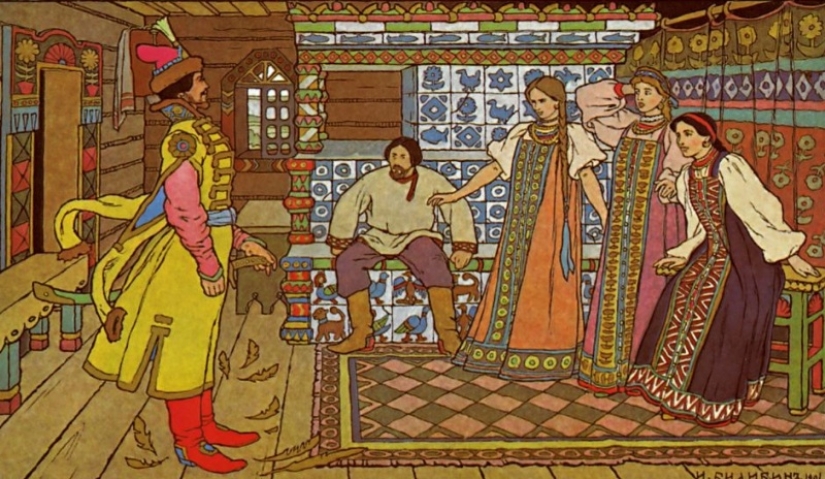How did the offensive word "freak" appear, and who was it called in Ancient Rus'
The word "freak" is taken as a serious insult these days. But in Ancient Rus', oddly enough, it had an extremely positive meaning. Freaks in Russian families were called first-born sons, who became the successors of the family. It was the first son who inherited the parental home and the farm attached to it.

It was the first son who was entrusted with the responsibility of looking after his elderly parents. The remaining sons, having matured, had to leave their father's house and build their lives on their own. Therefore, the eldest son was called a "freak", that is, one who remains "with the family."

"Urod" was the successor of the family and the main carrier of the gene pool and family traditions. The word "genus", "parents" and "freak" knowingly have the same root. The first son was dedicated to the god Rod, the god-father who created everything on earth. He was worshiped as the main creator and protector of all living things.
The Slavs believed that the first-born is under the protection of the Family, which has the greatest power. The child dedicated to God was special, and therefore he and his descendants were protected from problems and troubles. It turns out that initially the “freak” is dedicated, chosen, special.

This word was also related to appearance. One of its meanings is beauty. They said that a person was "born good-looking", or simply - "freak". By the way, this meaning has been preserved in some Slavic languages to this day. In Ukrainian, “like” means “beauty”. The first letter is changed due to the morphological features of the language.
Over time, the meaning of this word has changed. At first, they began to call people not of this world, bearing the seal of holiness. But with the departure from pagan roots and the transition to Christianity, people began to forget the true meaning of the word "freak." They began to apply it to holy fools, God's people with physical and mental disabilities. Then this meaning was also erased, and the word turned into an offensive label. So they began to call crazy, fools and simply inappropriately behaving people.

Changing the meaning of a word to a diametrically opposite one is not uncommon in Russian. The same thing happened with the word "witch". Once upon a time, wise, knowledgeable women, healers were called that. In the Middle Ages, it was already an evil witch. Nowadays, a witch is an evil, unpleasant old woman or just a woman with a bad temper.
Recent articles

It's high time to admit that this whole hipster idea has gone too far. The concept has become so popular that even restaurants have ...

There is a perception that people only use 10% of their brain potential. But the heroes of our review, apparently, found a way to ...

New Year's is a time to surprise and delight loved ones not only with gifts but also with a unique presentation of the holiday ...